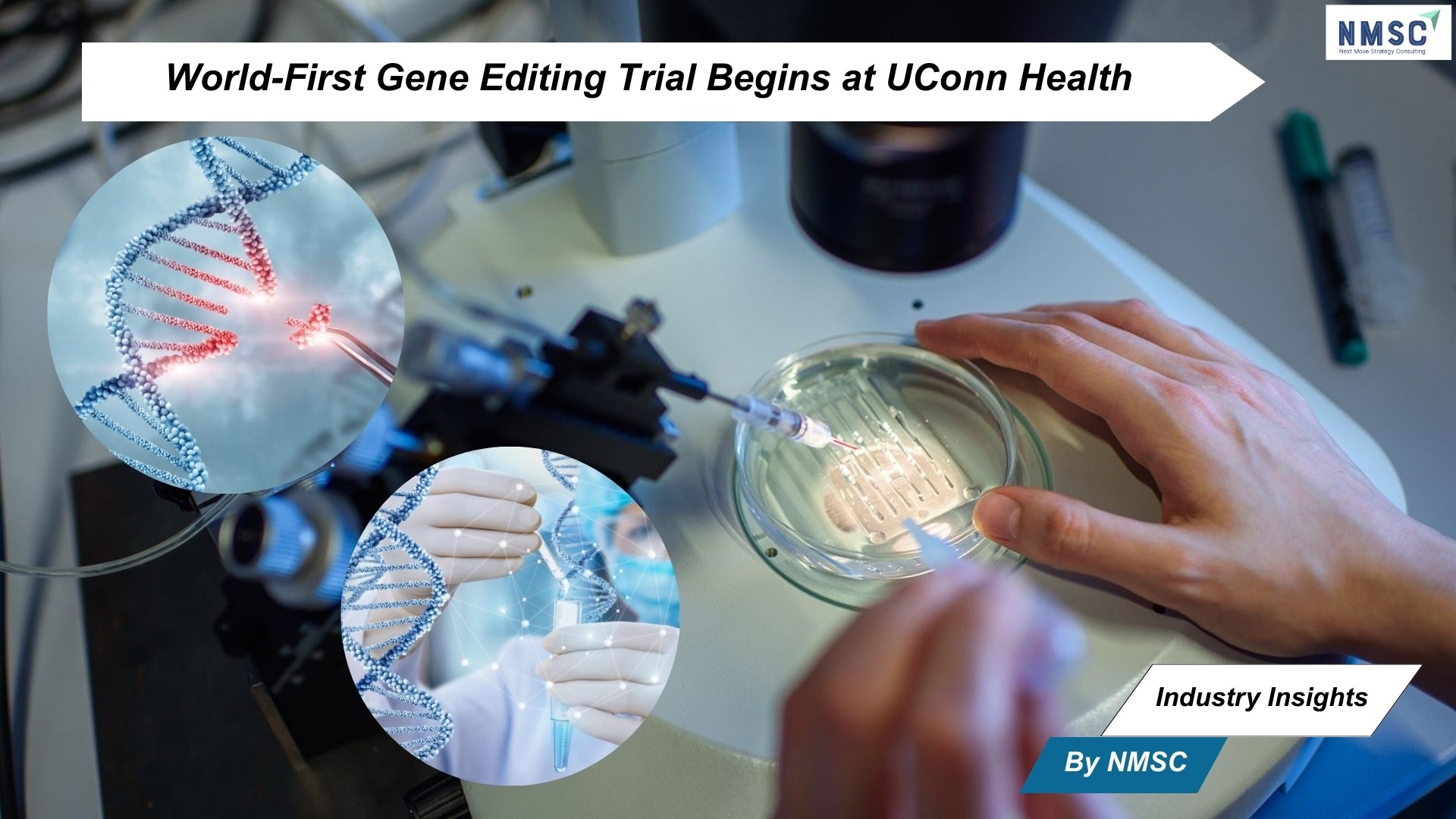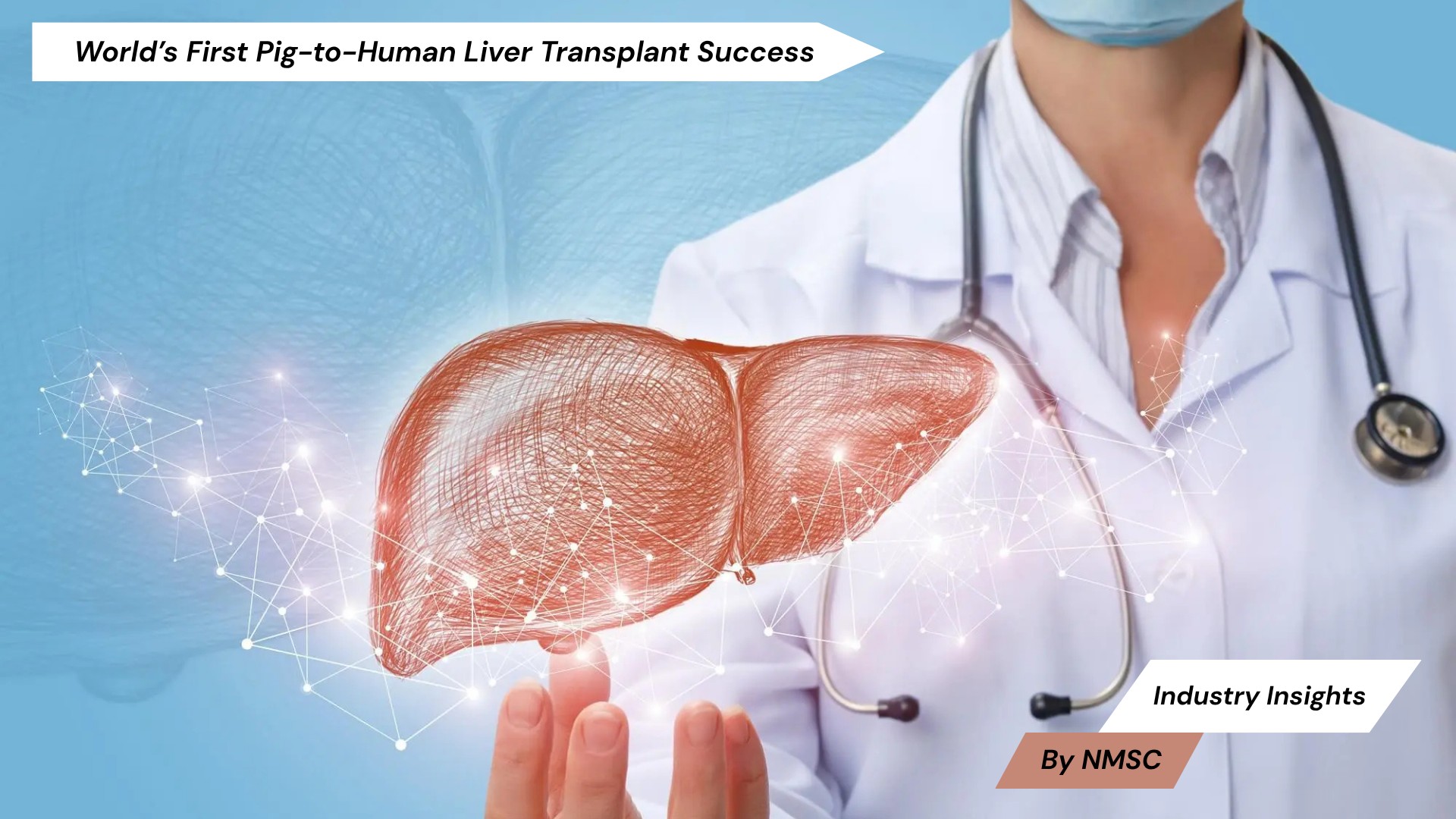World-First Gene Editing Trial Begins at UConn Health
Published: 2025-09-16

Industry Insights by Next Move Strategy Consulting
In a global milestone, UConn Health, in partnership with Connecticut Children’s, has administered the first dose to a patient in a pioneering clinical trial utilizing gene-editing technology to treat glycogen storage disease type 1a (GSD1a) — a rare inherited metabolic disorder. This marks the research team’s third “first-in-human” clinical trial focused on GSD1a.
Understanding GSD: A Life-Threatening Metabolic Disorder
Glycogen Storage Disease (GSD) is a serious metabolic condition caused by an enzyme deficiency that prevents the liver from converting glycogen into glucose. As a result, blood sugar levels can plummet, leading to potentially severe complications. The disorder can cause significant damage to the liver and kidneys and may result in life-threatening side effects, including death.
Leadership Behind the Clinical Trial
The trial is led by Dr. Rebecca Riba-Wolman, a pediatric endocrinologist in the Department of Pediatrics and a physician-scientist affiliated with both the Connecticut Children’s Research Institute and UConn Health. She is the principal investigator, with Dr. Karen Loechner and Malaya Mount, MS, RD, serving as sub-investigators.
A Breakthrough in Gene Editing for GSD1a
The therapy uses nucleotide editing, a highly advanced technique developed from CRISPR-Cas gene editing technology, which won the Nobel Prize in 2020. This trial aims to correct a single nucleotide—one of the basic DNA building blocks (A, G, C, or T) —responsible for the most common mutation in GSD1a. By precisely targeting this mutation, the treatment has the potential to permanently correct the disease at its source.
Building a Supportive GSD1a Community
Although the first participant in the trial came from out of state, UConn Health and Connecticut Children’s have developed a strong local and regional GSD1a community. This effort is backed by a committed clinical team made up of physicians, nurses, study coordinators, a research dietitian, and others, many of whom were instrumental in preparing for the first infusion.
Key Insights
-
Groundbreaking Application of Precision Gene Editing: The clinical trial introduces a next-generation gene editing technique based on CRISPR-Cas advancements, specifically designed to correct a single-letter mutation responsible for the most common form of GSD1a.
-
Long-Term Therapeutic Potential: By addressing the underlying genetic defect at the DNA level, the therapy aspires to provide durable health benefits and potentially reduce the need for lifelong management of GSD1a.
-
Built on Nobel Prize–Winning Science: The editing approach is derived from CRISPR-Cas technology, which was awarded the Nobel Prize in Chemistry in 2020 for its transformative role in genetic engineering.
-
Rare and Pioneering Human Application: GSD1a is among a limited number of conditions being explored through in-human gene editing interventions. At present, the only FDA-approved gene editing therapy is for sickle cell disease, underscoring the innovative nature of this trial.
A Historic Milestone in Rare Disease Research
While the full impact of the trial may take years to unfold, this landmark achievement highlights the growing prominence of UConn Health and Connecticut Children’s as leaders in rare disease research and gene-based therapies.
“We have now been involved in three first-in-human trials for GSD1a, and this one is the most ambitious yet,” says Dr. Rebecca Riba-Wolman. “It’s incredible to see how far the science has advanced, and being part of that progress here at UConn Health and Connecticut Children’s is truly special.”
Conducted in partnership with Beam Therapeutics, the trial builds upon decades of pioneering work in GSD1a research. It is poised to influence not only the future of treatment for this rare condition but also the broader landscape of genetic disease therapies.
Source: https://today.uconn.edu
Prepared by: Next Move Strategy Consulting.
















Add Comment